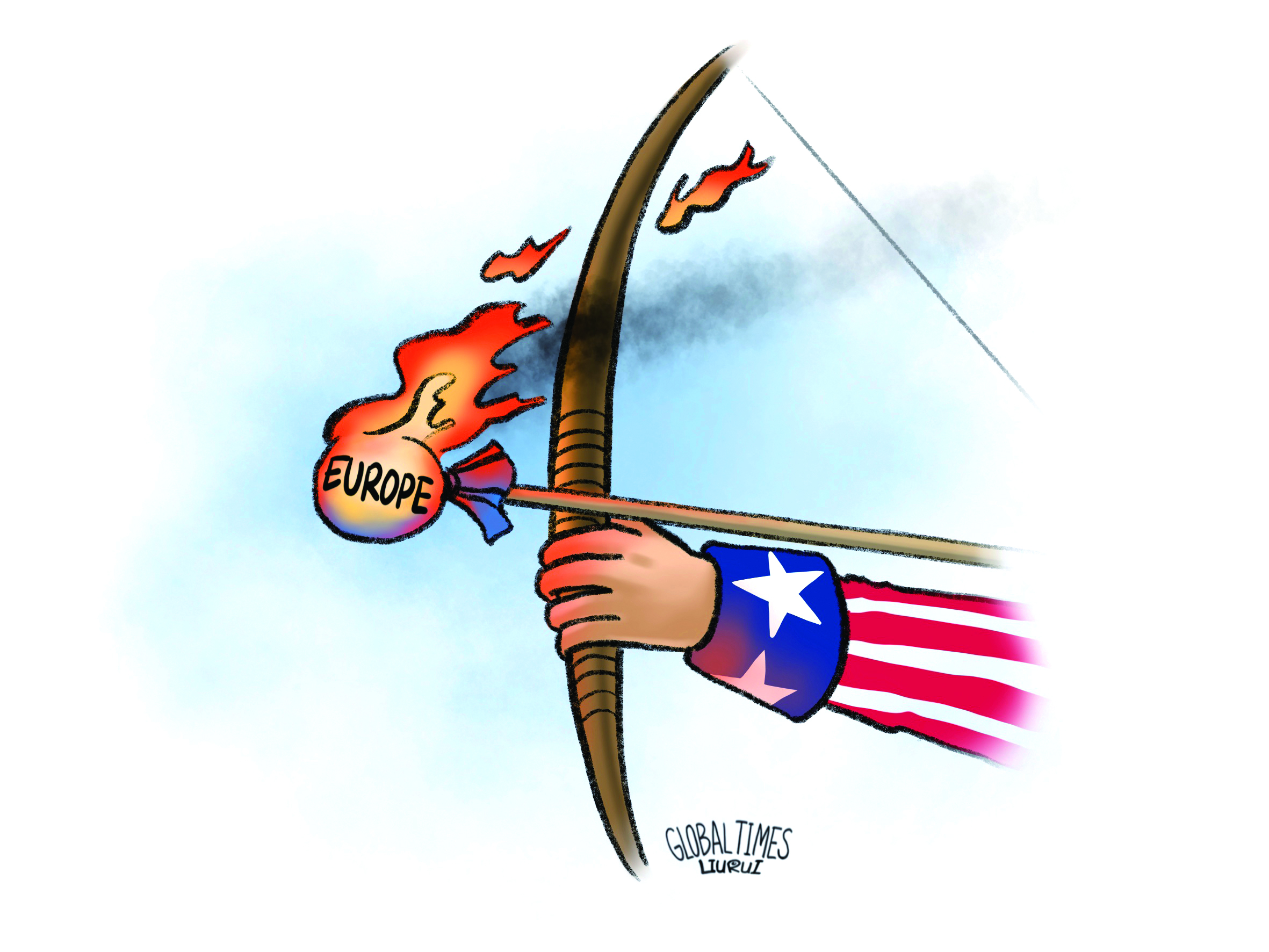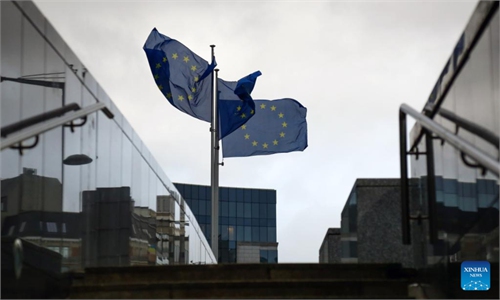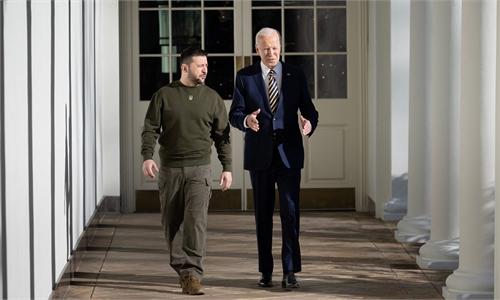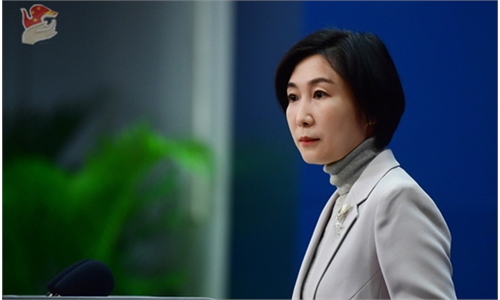As contradictions between US and EU grow, Europe will reevaluate its role in Ukraine

Illustration: Liu Rui/Global Times
The Russia-Ukraine conflict has been recently escalating. The US, the West, and Russia have poured a large amount of military and material resources into the battlefield, constantly touching the red line between the two sides and risking entering into a spiral of deterioration. At the same time, secondary hazards brought about by the conflict have emerged, especially internal contradictions in the US and the West. The divergences of different parties' interests continue to affect the internal unity of the US and Europe.The impact of the conflict is spreading from the battlefield to the economic, energy, political, and other fields. Energy prices have soared, inflation remains high, and the momentum of economic recovery is under further pressure. As the game between Europe and the US around the Inflation Reduction Act (IRA) intensifies, Europe has no alternative but to bear the consequences of following the US closely.
After decoupling from Russian energy, Europe has fallen into an energy dilemma. It has also fallen into the trap of being highly dependent on US energy supplies, with Washington becoming the biggest beneficiary of the European energy crisis, taking advantage of the opportunity to profit from it and destroying European industrial production capacity in the process.
Under the dual influence of high inflation and the energy crisis, European manufacturing flows to the US, fueling fears of Europe's "deindustrialization." At a time when the European economy is already facing severe challenges, the US' unilateral economic policy has made things worse. The US launched the IRA, which will provide about $370 billion in climate change investments to help reduce carbon emissions by roughly 40 percent by 2030. And Europe claims that the IRA undermines the level playing field between the US and Europe. The IRA is the latest manifestation of the neo-isolationism in the US, which has undoubtedly increased competition and even deepened rifts in the relationship between Europe and the US.
The EU's green transformation has encountered difficulties such as the competition for green economic advantages and the strengthening of structural tension in US-EU cooperation. French President Emmanuel Macron even proposed the "buy-Europe" act to benefit local businesses with public contracts. German Chancellor Olaf Scholz is supportive of a joint EU funding solution among EU nations in response to the US' subsidies for green technology. It remains to be seen whether the friction between Europe and the US over the IRA will trigger a new trade war, but it fully demonstrates that Europe and the US are far from monolithic. With undercurrents surging, it is not ruled out that the trade issue will gradually evolve into a trust crisis.
The differences between the US and Europe have increased and the rift has widened. Europe is not only facing the impact of the Russia-Ukraine conflict, but also suffering the backlash of "America First." The EU's strategic dilemma is becoming more prominent and the space for strategic maneuvering is shrinking. With the Russia-Ukraine conflict becoming protracted and more complicated, on one hand, Europe, kidnapped by the US, has to upgrade economic sanctions against Russia together with the US, increase military aid to Ukraine, and exert extreme pressure on Russia in all aspects. Germany said it would supply its Leopard 2 tanks to Ukraine, which further fueled the fire of the conflict. On the other hand, Europe has to swallow the bitter consequences of the war. Europe is facing a cost-of-living crisis due to high energy prices and inflation as well as the dilemma of the hollowing-out of industries. Europe has borne the brunt of the Russia-Ukraine conflict that the US provoked, and it cannot escape the result that "the US reaps the benefits while Europe swallows the bitter fruits."
As Europe loses Russia's cheap energy and is bound by US strategy, the vulnerability of the European economy has been exposed, and the downward pressure on the European economy is increasing. In the context of the relative decline of the European economy and rising unemployment, the stagnant development of some European countries has intensified many long-standing problems. European social tensions are exacerbating, anxiety continues to rise, and conflicts within European societies may further intensify. This will affect the attitude of the European people toward the Russia-Ukraine conflict and the extent to which European countries will be involved in the conflict.
The economic and social pressure Europe is facing will undoubtedly make the European people recognize the true intention of the US to sacrifice the interests of European allies for the US own interests. They will re-evaluate the Europe's involvement in the Russia-Ukraine conflict and Europe's support for Ukraine. In general, if Europe ignores the reality that the global power structure has undergone tremendous changes, and cannot maintain strategic autonomy amid geopolitics, and cannot sustain development and unity in the chaotic era of continued low economic growth and political instability, Europe's fatigue, powerlessness and vulnerability in front of the Russia-Ukraine conflict will become more evident.
The author is a research fellow with the Institute of European Studies, Chinese Academy of Social Sciences. opinion@globaltimes.com.cn



